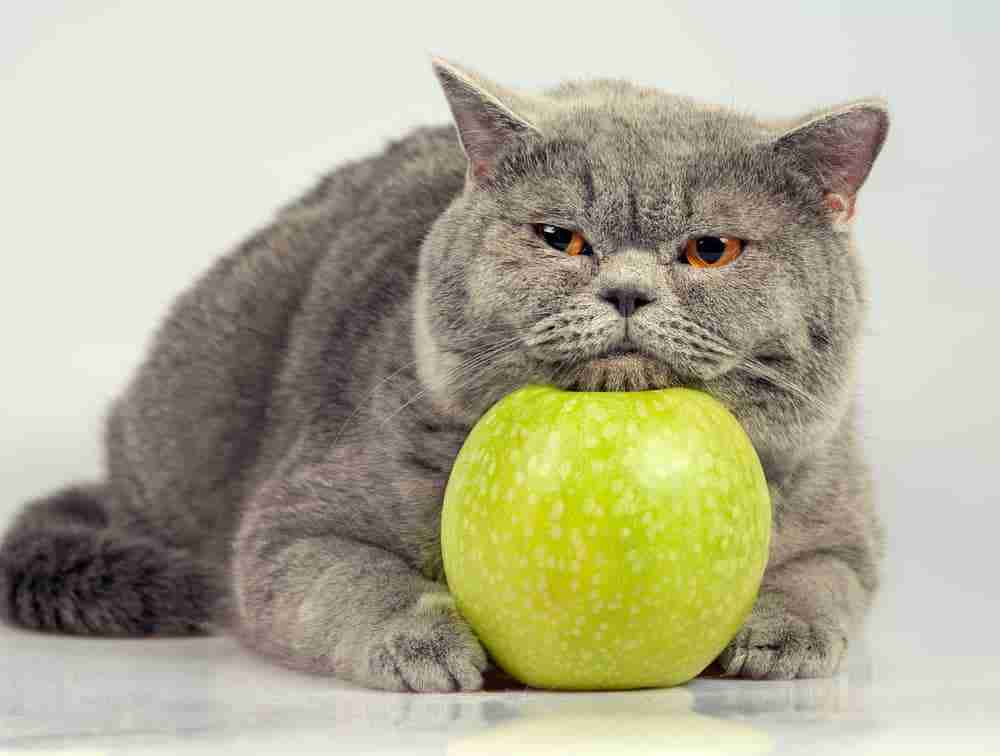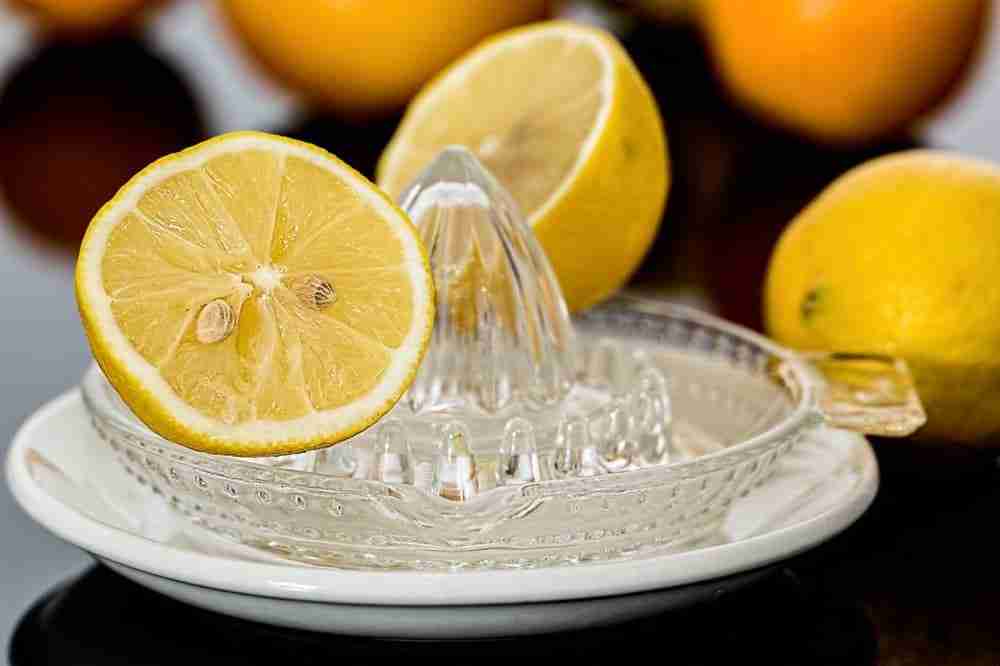Can cats drink orange juice? No, the essential oils, polyphenols, and sugars are at best bad for your cat and at worst highly toxic. Read on to learn more…
- Can My Cat Drink Orange Juice?
- Are Juice Mixes Bad for Cats?
- Is Sugar-free Orange Juice Bad for Cats?
- What Do I Do If My Cat Drinks Orange Juice?
- What Are The Symptoms and Signs of Orange Juice Poisoning in Cats?
- Diagnosing and Treating Orange Juice Poisoning in Cats
- Wrapping Up – Keep Your Kitty Away from Orange Juice
You’re sitting in your breakfast nook enjoying a fresh glass of orange juice when your cat wanders over. She sits at your feet, looking at your sip on the juice, and starts mewing at you. She just had something to eat a minute ago, so what’s the problem?
In typical feline fashion, your cat sees you enjoying something and decides they want in on the action too.
It doesn’t matter if they don’t like it; they’re willing to take that chance – as long as it inconveniences you somehow. In all seriousness, we love our kitties, and seeing them beg for a sip of juice is nothing short of hilarious.
You place the glass on the table and walk off to the bathroom to dress for the day. On your return to the kitchen, you find your cat on the table, with its head in the glass. You instantly start to wonder, can cats have orange juice? Or is this going to end up in a trip to the vet?
Can My Cat Drink Orange Juice?
To give you a quick answer – No, cats shouldn’t drink orange juice. The orange contains several polyphenol antioxidants that have a toxic effect on cats. The polyphenols like psoralens, limonene, and Linalool are potent plant compounds causing problems with your kitty’s physiology.
For a quick catch-up on the science, pet owners need to understand that cats don’t produce “glucuronyl transferase.” This enzyme breaks down the polyphenols and essentials oils in the orange and orange juice, preventing a toxic reaction to the compounds.
The cat evolved to be an obligate carnivore, meaning they can only eat meat. They lack the evolution in the digestive system to include herbivore and omnivore characteristics, like the ability to produce glucuronyl transferase.

Are Juice Mixes Bad for Cats?
According to research, psoralens are also present in juice mixes containing orange juice. Since orange juice is a base product in many juice combinations, it’s not safe for cats to drink any form of juice mix.
Keep your cat away from any fruit juice to avoid citrus toxicity and health complications. Consuming fruit juice may also lead to the development of photosensitivity to light in cats.
Can cats drink apple juice? Apple juice is certainly less dangerous to cats than orange juice – but it is still not a natural drink for your cat!
Is Sugar-free Orange Juice Bad for Cats?
Cat’s are not supposed to drink anything but water. If you think that sugar-free orange juice is fine for your cat, think again. The issue with cats drinking juice isn’t the sugar; it’s the essential oils and polyphenols found in the orange juice.
In fact, some no-sugar beverages may prevent an even more life-threatening scenario for your cat. Most no-sugar fruit juice combinations contain sweeteners like xylitol and aspartame to enhance the sweetness in the juice. Your cat’s digestive system can’t process these chemicals, causing a toxic reaction in your cat.
Keep your cat away from any fruit juice, soda, or anything that isn’t their water dish. It might also surprise you to learn that cats should be drinking milk either, but that’s a story for another post.
What Do I Do If My Cat Drinks Orange Juice?
If your cat drinks orange juice, it’s not the end of the world in most cases. Try to assess how much juice the cat drank. Look at the level of the glass, and try to estimate how much you left in it. In most cases, the symptoms of citrus poisoning will only show up if the cat drinks a significant amount.
Monitor your cat’s behavior for the next three to four hours. Please keep them in the same room as you, and check their condition every few minutes for the first few hours. It takes time for the juice to pass through your cat’s digestive system, and the results of citrus poisoning won’t be immediate.
If your cat starts mewing or trying to get your attention, they’re trying to tell you something. They might visit the litter box and sit there mewing due to the discomfort they’re feeling. Typically, if the problem persists for more than 12-hours, take your cat to the vet for a checkup.

What Are The Symptoms and Signs of Orange Juice Poisoning in Cats?
It’s important for cat owners to note that citrus poisoning is rarely fatal in cats. While that might be a load off your mind, it’s important to remember that it creates a serious amount of discomfort for your cat, and they probably won’t feel like themselves for a few days until they recover.
If you suspect your feline friend got into your orange juice, you’ll have to watch them for the signs and symptoms of citrus poisoning. If you suspect severe poisoning, take your cat to the vet. While citrus poisoning rarely causes a fatality in cats, it’s still a possibility in extreme cases.
In some cases, citrus poisoning can lead to the development of organ damage in your cat. They may start to experience health issues with their liver and kidneys, the organs responsible for clearing toxins from the bloodstream.
However, pet owners also need to consider the following. Cats don’t like orange juice, citrus smells are off-putting, so much so that citrus sprays can be used to keep cats out of rooms or prevent stray cats from peeing on your porch! Typically, they’ll walk up to the glass, stick their head in it, and have a sniff. Most cats leave it at that, and they don’t have any interest in drinking it.
However, some cats might find the sweetness of the juice appealing, and they’ll take a drink. The only way to know if your cat drank some of the juice is to monitor them for symptoms of citrus poisoning.
Cats that consume orange juice or oranges end up experiencing diarrhea, vomiting, weakness, and drooling. This effect is known as “citrus poisoning.” Citrus poisoning in cats cat has many complications, such as allergic dermatitis, creating severe skin irritation in your cat.

Diagnosing and Treating Orange Juice Poisoning in Cats
After telling your vet your cat’s medical history, they’ll ask you about your observations causing you to come to the vet.
The vet asks you if you saw the cat drink the orange juice and how much they drank. They’ll also inquire about your cat’s behavior since drinking and the length of exposure time to the orange juice.
There is no test the vet can do to check your cat for citrus poisoning. However, the vet may decide to conduct endoscopy procedures to determine the effects of citrus poisoning in your kitty.
This procedure involves sending a long, thin tube with a camera attached at the end, down your cat’s throat. It allows them to investigate the digestive system of your cat to look for any severe complications of damage to the GI tract.
The endoscopy gives the vet a clearer indication of the problem than methods like CT scans and x-rays. If the vet does discover toxins in the cat’s stomach, they’ll likely recommend treatment with activated charcoal. The charcoal absorbs the toxins in the animal’s gut, reducing the effects of citrus toxicity in the animal.
Wrapping Up – Keep Your Kitty Away from Orange Juice
Keep your kitty away from orange juice or any beverage that isn’t water. As curious animals, your cat will investigate anything you eat or drink.
Therefore, don’t leave glasses of juice lying around the house. If you don’t finish your juice, put it in the fridge for later, or throw it out. Don’t risk your cat taking an interest in your leftovers.
